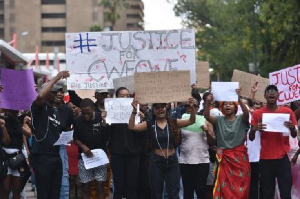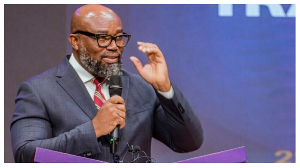Former Education Minister, Prof. Naana Jane Opoku-Agyeman has reacted to comments from her colleague educationist, Prof. Steve Adei suggesting that the ‘200-Day schools’ initiative implemented by the erstwhile Mahama administration was a completely useless one.
Defending her administration on the ’21 Minutes with KKB’ show, she maintained that every investment in education, regardless of how minute or big it is, can never be considered useless especially because education is the backbone of every country’s development.
Prof. Adei made earlier suggestions to the effect that the decision by the Mahama government to put up some 200 community day senior high schools was a useless one considering that the only beneficiaries of the vision were the contractors who put up the said facilities and not Ghanaians.
According to the educationist, situating most of these secondary schools in the hinterlands particularly was pointless since there were no hostel or boarding facilities available to students and teachers making it difficult for any of those schools in such obscure locations in rural Ghana to attract the needed numbers [1,500] to fully make use of the facilities.
“They are only useful for urban areas. All that they have put in the villages are going to be useless...they are useless. To transport 1,500 people within, you have to go about 30 km in order to fill them without any boarding, without any teachers' bungalows, nothing? How can you do so?”, he said earlier on the show.
But Prof. Naana Jane Opoku-Agyeman flawed his suggestions, maintaining that the day schools were built to ease the burden of paying boarding fees and other costs on parents and to allow for more people to have access to secondary education without prohibitions.
“I don’t see how any investment in education can be useless, I think investment in education is good….. The focus was on Community Day schools for the reason that if you look at any child’s bills from the senior secondary schools, you’ll notice that the boarding was the highest and that was also the reason that somebody might or might not go to school”, she explained.
“We argue that it would be nice for anyone to be in boarding school but that wasn’t the reason why they shouldn’t go to school at all. In so far as the person has been able to go to a day junior high school, the junior high school is still secondary. So you’ve done half as a day student, it ought to be possible for this person to complete it in the day system rather than not go to school at all and it is not just the fees, all the preparations that the parents must make provisions for and all of this was prohibited to a lot of our people so the plan was to try to remove the cost barriers to senior secondary education and that’s why we thought about day schools first”, she added.
Prof. Opoku-Agyemang further detailed what went into choosing specific districts and the siting of the various schools at the places they were.
“I will not agree because we did a lot of homework before the sites were chosen. According to the act that established the district assemblies, each district must have a secondary school and the districts are done with the population in mind and if that is so, then I’m not aware of a district with 200 people. When we started, new districts were created by both governments, we prioritized the districts that had no secondary schools and in choosing where the schools should be sited, it wasn’t the priority of the ministry as such, we could only make suggestions because the ministry didn’t have land”.
“We had to work with the districts, they will go the chiefs who own the land and they will tell us that in terms of the space you want, this is where the land will be. We also looked into the distributions of Junior high schools in the area and all of these went into the siting of the schools and I think that it was a concerted effort; the chiefs, the assembly, the schools, the statistics people, census people to get to know the population and mapping of the district so we can know where the land will be. We asked for big pieces of land because we knew the schools will be expanded some day and that is what the chiefs gave us. For a country like Ghana to be able to invest such an amount in education, it is very very laudable. Investment in education, I will never call it useless”, she noted.
She continued;
“I’m not sure about it being inflated and it being in villages where there’s no use. We have a youthful population so every year, we have more people than the year before and education also helps with democracy and social equity, if you cite all the schools in the cities, you inconvenience those in the rural areas”.













